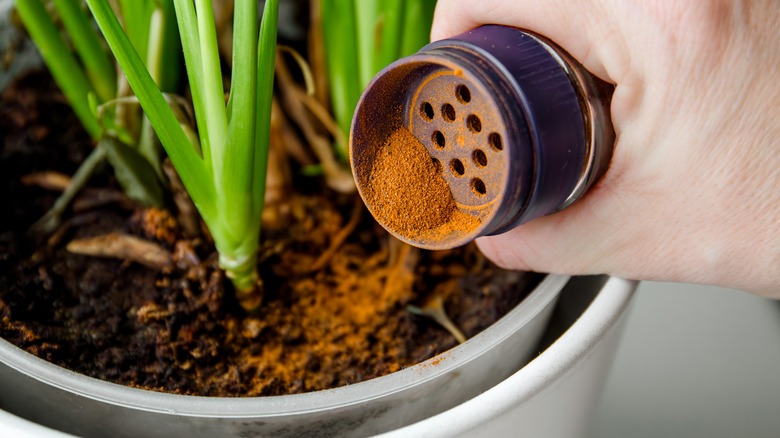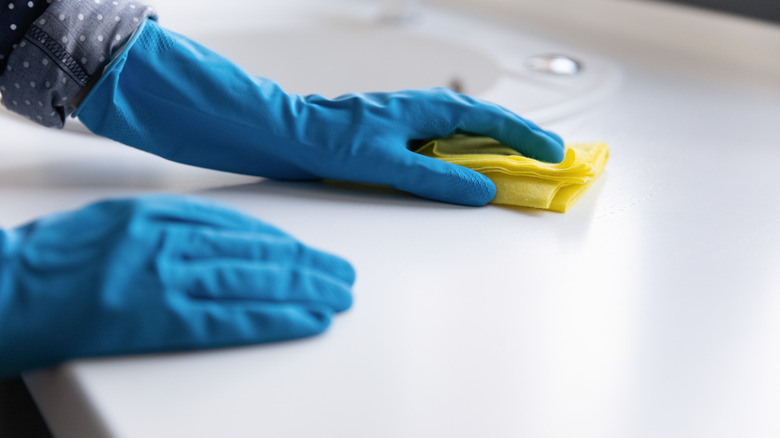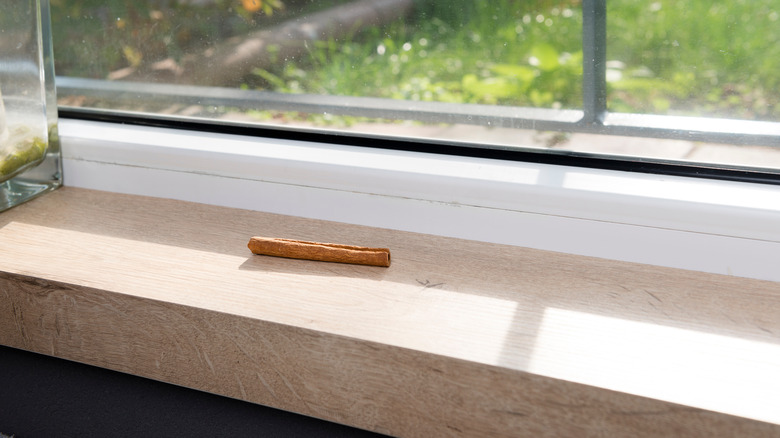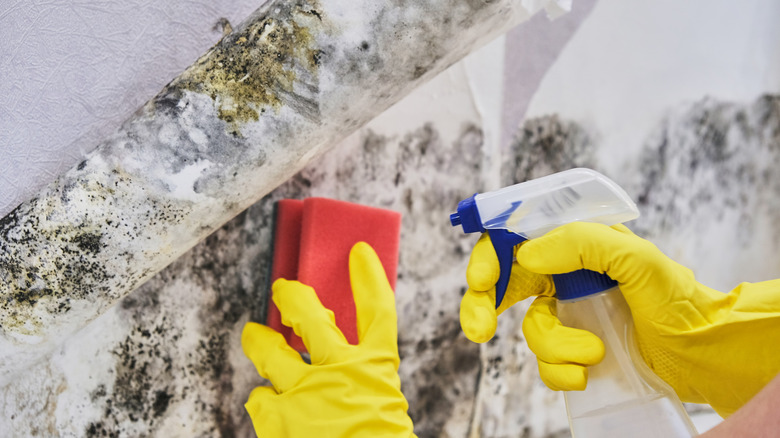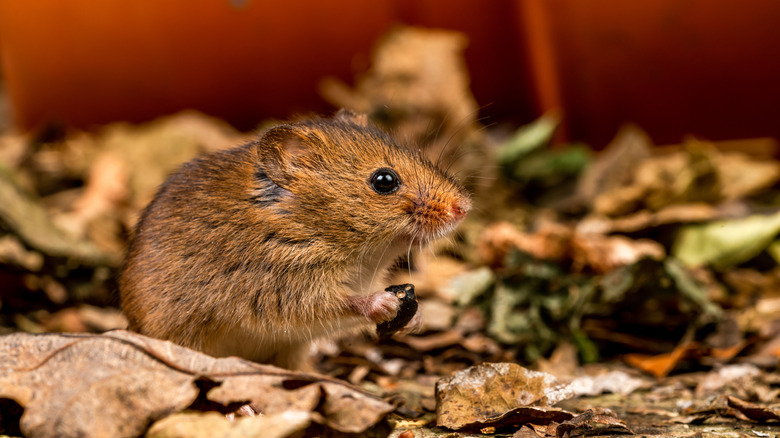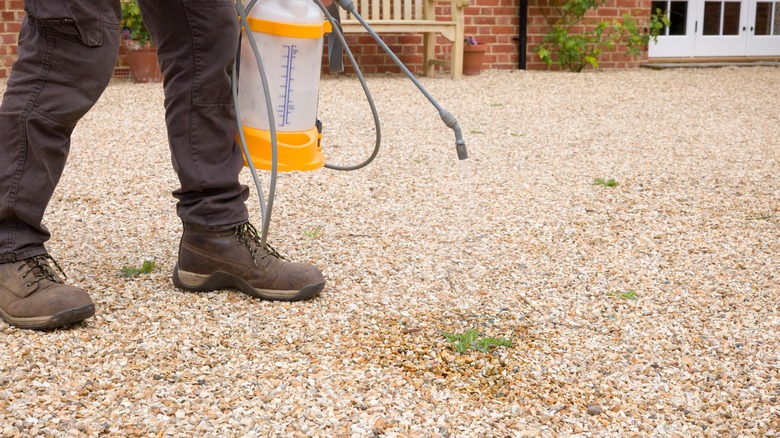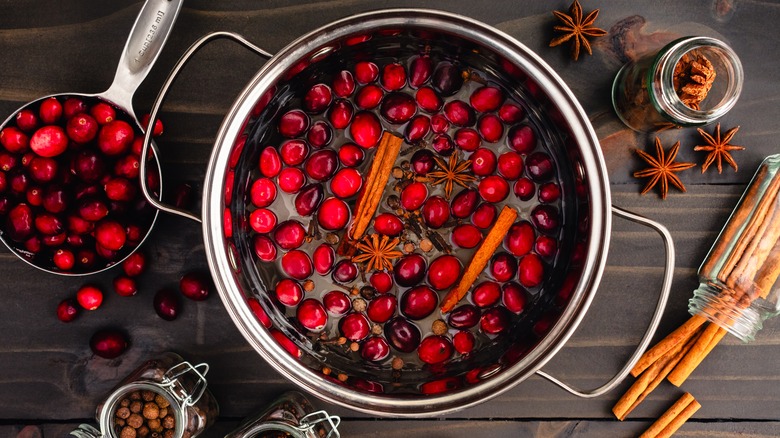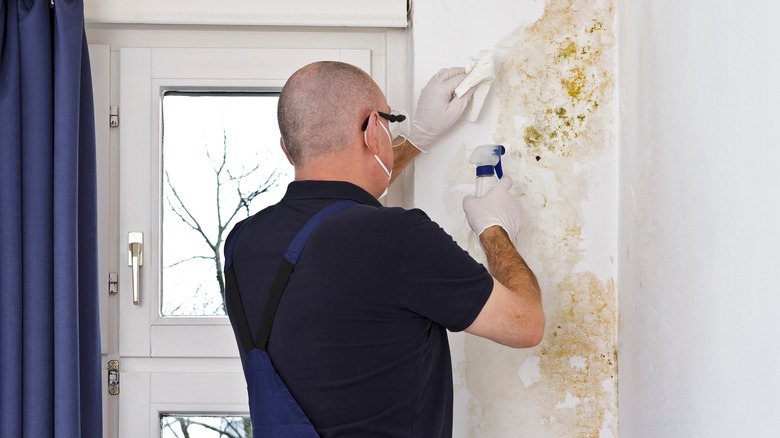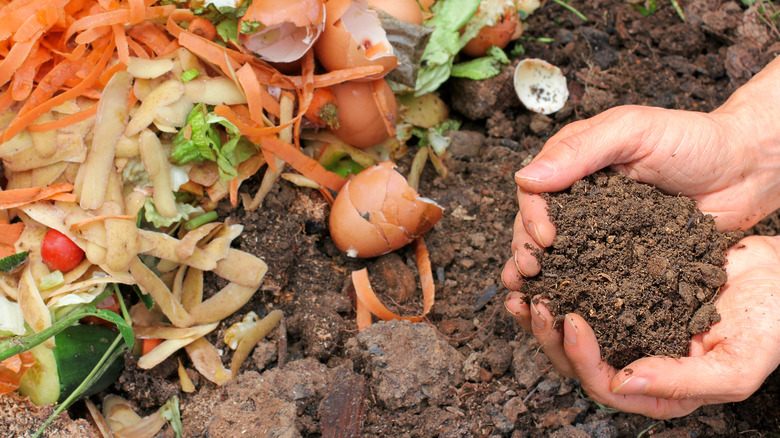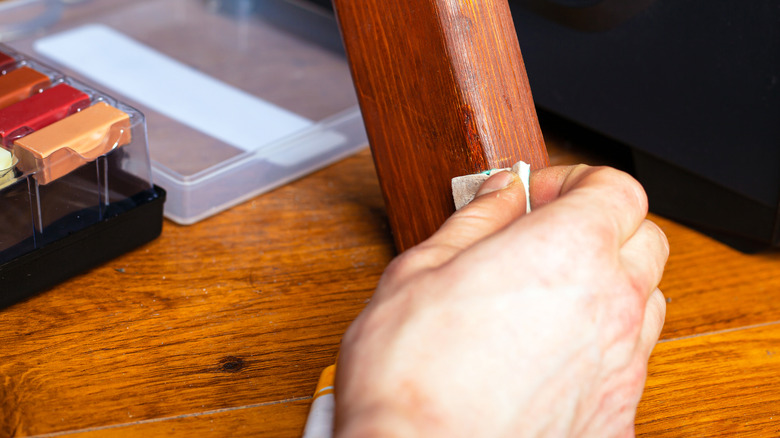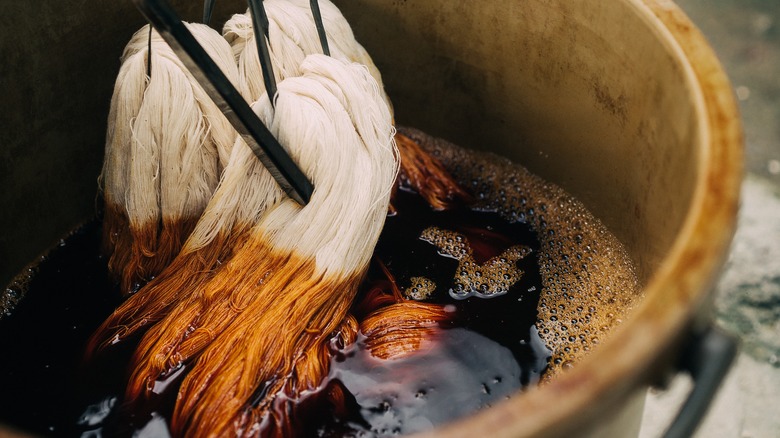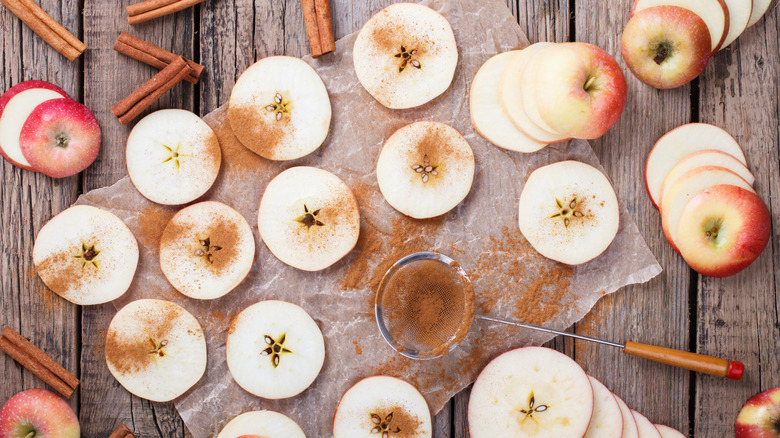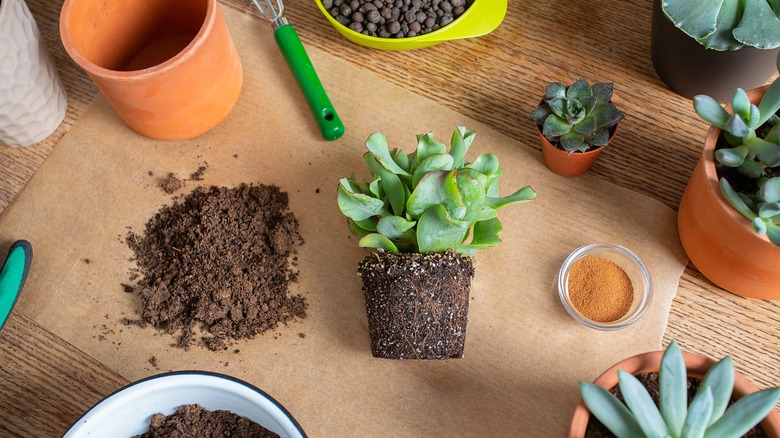Start Using Cinnamon In Your Routine For A Cleaner Home
Cinnamon has a rich, long history of use as a beloved culinary spice to add warmth to dishes and for medicinal use. It comes from the inner bark of the Cinnamomum tree and has potent compounds. Out of these compounds, cinnamaldehyde is arguably the most useful. The unique properties you get when you use this spice permit you to employ it indoors and outdoors with excellent results. Whether you plan on using it to eliminate fungi or bacteria or to ward off critters and pests, cinnamon does it all. Additionally, it adds a nice gritty texture that allows you to easily clean and polish items without scratching them.
Using cinnamon outdoors gives you a host of benefits. If you like to garden, cinnamon can help protect your plants from pest infestations or diseases and works on houseplants. For indoor use, it can help absorb any lingering moisture in your closets or basement. Once it does, this helps win the ongoing battle with mold or mildew.
Adding cinnamon to your cleaning schedule gives you an eco-friendly and cost-effective solution to several common problems. As a bonus, you'll use it to get a cleaner and healthier home, and you only need a small amount to experience the benefits. It also comes in powder or stick forms, allowing for various uses.
Cinnamon as a houseplant soil enhancer
Did you know some gardeners say you can safely use ground cinnamon on your houseplants to protect against pathogens? To do so, sprinkle a thin layer of cinnamon on your freshly watered houseplant soil. Adding a thick layer creates a moisture barrier that can negatively impact how well your plant absorbs water. Apply the cinnamon after you water your plants to help it soak into the damp soil. This will only work if you reapply it at least once a month because it'll eventually wash away from routine watering.
The antifungal and antibacterial properties of cinnamon make it a good plant protector, especially the cinnamaldehyde content, according to 2015 findings published in Nutrients. Watering your plants and adding the cinnamon makes it easier for the spice to get to the roots. With the cinnamon in the soil, it makes it hard for fungi, bacteria, or diseases to live. This is because the antifungal and antibacterial properties will kill them before they get to your plants to cause damage. Also, cinnamon has a strong scent that helps keep common pests away, like fungus gnats. This is important because they lay eggs in the soil and harm plants. This dual action of disease prevention and pest control makes cinnamon a valuable, all-natural tool for houseplant care.
Cinnamon as a cleaning booster
Making a simple paste from cinnamon and baking soda works wonderfully as a DIY sink scrub cleaner. Many cleaners claim you can also use it to tackle stubborn water stains in your kitchen, bathroom, or carpets. To make it, get a bowl and mix a tablespoon of ground cinnamon with 3 tablespoons of baking soda. Carefully stir them until they combine, then slowly add a few drops of water. Stir the mixture until you get a thick paste. Add a generous drop of the paste on whatever areas you want to clean and scrub it with a sponge or brush, working in circular motions. Cinnamon's slightly gritty texture and natural cleaning properties make this baking soda mixture a solid, eco-friendly cleaning agent. When you finish and wipe it away, the cinnamon will leave a very faint smell.
The antibacterial and antifungal properties of cinnamon allow it to give you a powerful cleaning paste without adding any chemicals. As a bonus, a 2007 research paper published in the Journal of Agricultural and Food Chemistry shows that cinnamon's antimicrobial properties help kill any bacteria on whatever surfaces you clean. This reduces the chances of getting sick, making it a very nice alternative to use anywhere you prepare food. This disinfecting and deodorizing action makes the cinnamon and baking soda paste a fantastic addition to any household cleaning routine.
Cinnamon to deter ants and moths
You can keep ants out of your house with this cinnamon hack; all you have to do is sprinkle it around your home's entry points. Remember to put it by your doorways, window sills, and any small cracks or gaps where the pests could get in. Apply the cinnamon thinly and evenly to form a barrier. Place cinnamon sticks or satchels stuffed with ground cinnamon in the closet, wardrobes, and drawers where you keep clothing or fabric to deter moths. Renew these cinnamon applications often, preferably every week, for continued protection. If you sprinkle it in the kitchen, it can keep the ants from getting into your food, and putting it in the closet or tucking it into dressers will protect your clothes from moth damage. As a bonus, it's non-toxic and safe to use around your kids or pets, as long as you utilize powdered cinnamon. Cinnamon oil is toxic to pets.
According to 2021 studies published in Molecules, cinnamon has compounds that can repel ants and moths from treated areas. Additionally, it effectively deters pests because of its strong, pungent smell that overwhelms many insects. For ants, cinnamon messes with their scent trails, which they use for navigation and communication with other ants. This disorientation prevents them from finding routes to food sources in your home. Moths also avoid areas with cinnamon, so putting it in your closet or drawers will stop them from laying eggs in these spaces.
Cinnamon for mold prevention
To make a cinnamon-laced anti-mold spray, pour a cup of water into a spray bottle, add a cinnamon stick or two, and let it soak for an hour. Take out the cinnamon and give it a good shake before spraying it right on the mold or mildew. Spray your shower curtains, bathroom tiles, or damp corners in your basement where you spot it growing. It'll work best if you spray the spots, then leave them alone and let the cinnamon spray dry on them. You'll have to spray these problem spots at least once a week for the best results.
Per a 2020 study published in Postharvest Biology and Technology, cinnamon's compounds, mostly cinnamaldehyde, work quickly to help eliminate mold, mildew, or fungal infections. These fungi enjoy warm and damp areas and release spores that spread if you don't get rid of them. Cinnamon oil prevents these spores from growing and settling on surfaces. This natural approach appeals to those who prefer not to use harsh chemical fungicides in their living areas. With cinnamon oil added to your regular cleaning routine, you'll get a mold-free space using a safe and effective method.
Cinnamon as a wildlife deterrent
Deer, rabbits, and other small critters won't go anywhere near your precious plants and flowers if you sprinkle ground cinnamon around. For the best results, scatter it along the edges of your flower beds, garden, or around your potted plants. Sprinkling ground cinnamon or cinnamon-infused water around your doorways and window sills and all the little cracks where mice or rodents could slip through will also deter them. A few DIY pest controllers claim it works to keep your home pest-free because of the strong, lingering smell. Repeatedly apply the cinnamon every week or two, especially after it rains or you water. Doing so will keep the scent strong. Additionally, it's an eco-friendly way to keep unwanted wildlife out without harming them.
Cinnamon's strong scent is why it's so effective at warding away critters from your garden or home. Mice, deer, rabbits, and small rodents all can't stand the scent. It is also strong enough to affect the pest's sense of smell, something they need to find food and scent for danger. So, cinnamon is an excellent choice for protecting your gardens or home without hurting the animals. Using it allows you to make a non-invasive, natural scent barrier.
Cinnamon as a natural weed inhibitor
Use cinnamon to benefit your lawn or garden by leveraging the spice's natural properties. Scatter a generous coating of ground cinnamon over any areas that have a problem with weed growth. Zero in on the spaces between the plants, your walkways' cracks, or around the patio where weeds pop up. Carefully move through the problem areas and sprinkle an even layer of cinnamon. If you miss spots, you'll have weeds growing in these areas. A quick option is to mix 1 to 2 tablespoons of cinnamon into a gallon of water and spray the areas where weeds grow to get rid of them.
Ideally, you'll do this very early in the springtime when the weeds start to take root and come through the soil. You'll also have to repeat the application if it rains or when you water this area because it'll wash the cinnamon away. You don't have to worry about damaging your other plants like you would if you applied a chemical-based herbicide because cinnamon might be a potential natural herbicide. Some gardeners claim that when you spray or sprinkle it on, it uses its compounds to stop weeds from germinating.
Cinnamon for enhancing indoor air quality
Cinnamon is a great tool to improve your indoor air quality. To use it, all you have to do is bring a pot of water to boil on the stove and toss in a few cinnamon sticks. Lower the temperature so it simmers, and let the cinnamon release its strong oils that'll evaporate to act like a natural air freshener. It can help cover or neutralize musty smells and lingering kitchen odors, and the steam will add moisture to the air during the dry winter months.
To get a continuous effect, keep the pot on a low simmer and add water as it starts to get low to get the benefits throughout the day. However, cinnamon's antimicrobial properties dictate how effective this method is in improving indoor air. As the water boils and creates steam, the cinnamon will slowly get rid of fungal spores or bacteria to make the air safer to breathe. As a bonus, the warm, earthy smell of cinnamon is great for a relaxing and inviting atmosphere throughout your home.
Cinnamon to reduce mildew and dampness
Does cinnamon help remove mildew from the house? To try it, fill a small satchel or mesh bag with cinnamon sticks and hang them in damp areas of your home, like in your closet or basement. It's possible to place them amongst your clothing, hang them on closet rods, or tuck them into drawers or storage boxes. Cinnamon smells nice, but it's also effective for absorbing any excess moisture in the air, a 2021 study published in Environmental Challenges shows. This is especially nice when the weather is excessively humid or if you live in a place that has a rainy season. The subtle but constant scent of this spice helps keep your closets or basements drier and fresher. This helps protect your clothing and stored items from moisture buildup or mildew.
Some specialists say cinnamon oil works well for this task because it has natural antifungal and absorbent properties. Mix it with water and spray it on the affected areas. On the other hand, Cinnamon sticks are very porous. The porosity allows them to absorb moisture from the surrounding air and environment, reducing the humidity levels in enclosed spaces like closets. As the moisture level drops, mildew will have difficulty forming and existing because it needs damp conditions. Also, cinnamon's antifungal properties help stop mildew spores from forming. These reasons make it a wonderful eco-friendly alternative to anti-mildew products. By adding cinnamon sticks to these key areas, you'll maintain healthier closet spaces while protecting your clothing from moisture damage.
Cinnamon for enhancing compost
Good composting involves adding items to encourage faster decomposition and enrich its content, and cinnamon helps. Adding the spice to your composting routine, whether you use powder or sticks, doesn't need any special preparation. Sprinkle powdered cinnamon over your compost or place a few cinnamon sticks throughout the compost's layers for this project. Cinnamon actively participates in the composting process, bringing in a pleasant scent. This spice works wonderfully in small compost piles or with indoor bins to help manage pests and odors.
Adding cinnamon to your compost pile speeds up how fast your materials break down and adds nutrients. Many gardeners say its natural compounds reduce mold growth as the organic matter breaks down. So, you'll end up with a healthier, richer product to mix into your garden soil. Along with helping with decomposition, cinnamon works as a pest deterrent. It'll keep out unwanted visitors that may be attracted to the rotting compost, like ants and fruit flies. Adding cinnamon to your compost creates a more effective and streamlined composting experience. Ultimately, this will lead to better-quality compost for your garden.
Cinnamon to repair scratches in wood
Erasing stubborn furniture scratches with cinnamon is a useful household hack, some home care experts claim. Mix a few teaspoons of mineral oil or coconut oil with ground cinnamon until you get a thick paste. You want it to be dense enough that it sticks instead of running down the side when you put it on the wood. Take this paste and gently rub it into the scratches with a soft cloth or a cotton swab. Add enough cinnamon-laced paste to fill in the scratch and coat the area around it. Let the paste sit for a few minutes to get into the wood before you wipe off the excess with a clean, soft cloth. This method works well for minor surface scratches as a quick fix to help improve the look of the wooden piece.
Cinnamon's color and texture are the keys to making it an effective hack. The natural brown hue of cinnamon is a close match to a range of wood finishes. So, this lets it blend seamlessly into the scratched spot. Mixing cinnamon with oil creates a paste that fills the scratch and dries, making it less noticeable. The oil will also moisturize the wood, which boosts its overall appearance and helps ward off more damage. Note that this may not remove the scratch completely, but it will make it much less visible and give your furniture a more polished look.
Cinnamon as a natural fabric dye
Some cinnamon and spice enthusiasts suggest using cinnamon before you try to refresh your outdoor cushions with fabric dye. To make it, boil a large pot of water on the stove and add 20 or 30 cinnamon sticks. How many you add will depend on the color you want your finished product. Add more cinnamon sticks to get a deeper, richer color, and let them simmer for another hour or two. When it gets to the desired color, remove it from the heat, strain out the cinnamon sticks, and add your fabric to the water. Stir it constantly so you don't end up with blotches of color and lighter patches. The longer you soak it, the darker the color will get. To finish, take it out, rinse it under cold water until you can't see dye running in the sink, and allow it to air dry out of direct sun.
The natural tannins in cinnamon allow you to use it as a dye, giving the fabric an earthy, warm color. Your colors will range from a very light tan to a dark brown. This fun, environmentally-friendly dyeing process adds character to your fabric because each piece will be a little different.
Cinnamon as a fruit and vegetable preservative
It's a good idea to know how to make your fruit and vegetables last longer. According to 2014 research published in Evidence-Based Complementary and Alternative Medicine, cinnamon is a great food preservative and easy to use. All you have to do is slice up your fruits and vegetables and sprinkle a little cinnamon on the cut surfaces. Once you coat them, store them in the refrigerator or on the counter. The light coating of cinnamon helps your produce last longer by slowing down how quickly it decays or rots. This trick works nicely on apples, bananas, peaches, cucumbers, and leafy greens. However, use a light hand when you add the cinnamon. If you put on a thick layer, this is all you'll taste when you eat your fruits or vegetables, even after you rinse them.
The antimicrobial properties cinnamon has are the keys to making your fruits and veggies last. This spice uses cinnamaldehyde to slow or stop fungi and bacterial growth. So this makes it a chemical-free way to enjoy your produce for several more days without worrying about cutting off bad parts.
Cinnamon as a natural rooting hormone for seedlings
To use cinnamon as a rooting hormone for your seedlings, start by getting some ground cinnamon. If you want something stronger, opt for a cinnamon stick. Apply the ground cinnamon by sprinkling a light, even layer directly onto the soil around the base of your seedlings. If you're using a cinnamon stick, place it in a watering can filled with water and let it soak overnight. This creates cinnamon-infused water, which you can use to water your seedlings. Consistency is key; reapply the ground cinnamon after each watering session or when it rains to keep it effective.
Gardeners claim cinnamon's effectiveness as a rooting hormone lies in its unique natural composition. When you use it, cinnamon provides essential nutrients and stimulates the root cells' growth and division. This stimulation is crucial for seedlings to encourage strong root development. It's the key to their overall health and ability to absorb water and nutrients from the soil. The gentle, natural compounds in cinnamon promote this root growth without the harsh effects that synthetic hormones can have. Additionally, cinnamon's natural properties help improve soil quality by enhancing its texture and nutrient content. In turn, this creates an ideal environment for root development.

